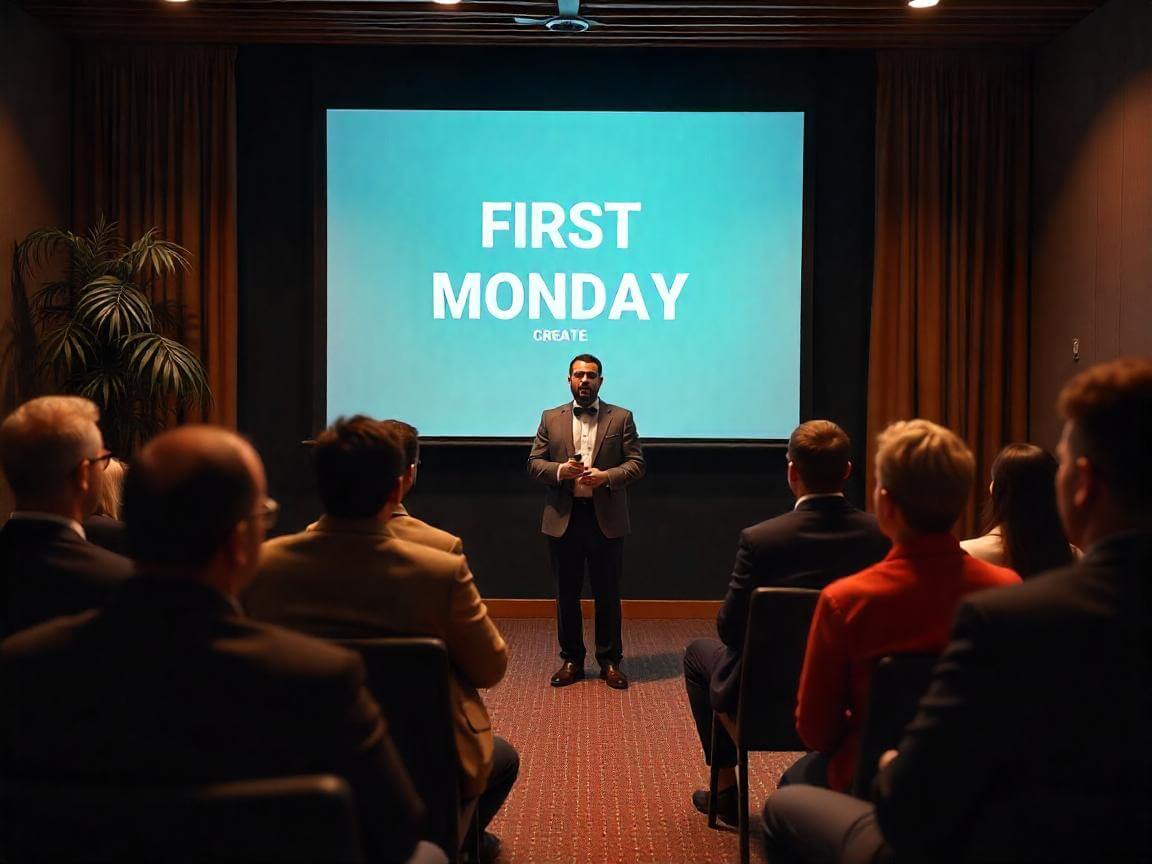
Startup Events: Why They Matter and How to Make the Most of Them
The startup world is evolving faster than ever, and staying ahead means doing more than just reading the latest blog posts or watching tech YouTubers. One of the best ways to gain insider knowledge, attract investors, and connect with like-minded innovators is by attending startup events.
Whether you’re a founder, investor, developer, or curious entrepreneur, startup events offer unparalleled access to networking, trends, funding opportunities, and growth strategies. In this comprehensive guide, we’ll explore the benefits of attending startup events, the types you should prioritize, and how to make the most of them in 2025.
What Are Startup Events?
Startup events are organized gatherings—conferences, expos, pitch nights, demo days, and networking mixers—dedicated to entrepreneurs, investors, developers, and anyone interested in innovation and high-growth businesses.
These events range in size from small local meetups to massive global summits and feature:
- Panel discussions
- Startup competitions
- Workshops and masterclasses
- Product launches and demos
- Investor networking sessions
Their goal? To accelerate connections, collaborations, and startup growth.
Why Attend Startup Events?
If you’re building or working in a startup, attending events isn’t optional—it’s essential. Here’s why.
1. Build a Powerful Network
Startup success often hinges on who you know. Startup events allow you to meet:
- Investors and VCs
- Founders and co-founders
- Developers and engineers
- Marketers, mentors, and consultants
Making authentic connections opens doors for partnerships, hires, and funding.
2. Learn From Industry Experts
Startup events are packed with actionable advice from those who’ve been in the trenches. You’ll hear from:
- Successful entrepreneurs
- Angel investors and venture capitalists
- Legal and growth experts
- Tech innovators
Panels and workshops cover topics like fundraising, go-to-market strategies, and scaling internationally.
3. Showcase Your Startup
Pitch competitions and demo days give you the chance to:
- Pitch your idea to live investors
- Gain media exposure
- Collect user feedback
- Find potential customers or collaborators
Even if you’re not presenting, observing how others pitch teaches you how to refine your own value proposition.
4. Stay Ahead of Trends
Tech and startup trends shift rapidly. Events reveal what’s next in:
- Artificial intelligence (AI)
- Web3 and blockchain
- SaaS and cloud computing
- GreenTech and HealthTech
By attending, you’ll spot opportunities early and adjust your strategy.
Types of Startup Events to Attend in 2025
Startup events come in many forms. Here are the main types you should consider.
1. Startup Conferences
Startup conferences are large-scale, often multi-day events featuring keynote speakers, panel discussions, and expo halls.
Top examples:
- TechCrunch Disrupt (San Francisco)
- Slush (Helsinki)
- Web Summit (Lisbon)
- SXSW Startup Track (Austin)
- Startup Grind Global (Silicon Valley)
These are great for getting a global overview, finding inspiration, and connecting with serious investors.
2. Demo Days and Pitch Nights
These events allow startups to present their ideas live to investors, accelerators, and the tech community.
Often organized by:
- Accelerators (e.g., Y Combinator, Seedcamp)
- Co-working spaces
- VC firms or angel networks
- University incubators
Pro Tip: Practice your pitch beforehand and bring a pitch deck.
3. Hackathons and Startup Weekends
If you’re still early in your startup journey, events like Startup Weekends або Hackathons are perfect to:
- Build MVPs in 48-72 hours
- Collaborate with developers, designers, and marketers
- Learn lean startup methodologies
These events are practical, hands-on, and ideal for validating ideas quickly.
4. Local Meetups and Industry Mixers
Not every startup event needs to be massive. Local tech meetups offer consistent value and easier access to resources in your region.
Find events on:
- Meetup.com
- Eventbrite
- Local coworking spaces
- Chamber of Commerce or startup hubs
Smaller gatherings often lead to deeper relationships and community support.
5. Virtual Startup Events
While in-person events are back, virtual startup events remain popular due to their convenience and lower cost.
Benefits:
- Attend from anywhere
- Rewatch recorded sessions
- Connect with global attendees
- Avoid travel and lodging expenses
Platforms like Hopin, Zoom, and Airmeet host some of the best virtual startup conferences.
How to Find the Best Startup Events
With hundreds of events happening globally, how do you choose the right ones?
Tips to choose the right startup events:
- Match your goals: Are you fundraising, hiring, or testing ideas? Choose accordingly.
- Check attendee lists: Will your target investors or customers be there?
- Look at speaker lineups: Are the sessions relevant to your niche?
- Use trusted directories: Try sites like TechCrunch, EU-Startups, AngelList, or StartupBlink.
- Join startup communities: Slack groups, Reddit forums, and Discord servers often share event calendars.
Preparing for a Startup Event
Success at an event doesn’t come from just showing up. Here’s how to prepare effectively:
1. Set Clear Goals
Ask yourself:
- What do I want to get from this event?
- Who do I want to meet?
- What sessions must I attend?
2. Create a One-Pager or Deck
Bring a one-page summary of your startup with:
- Problem + solution
- Product overview
- Traction metrics
- Contact info + QR code
- Logo and website
Have a pitch deck ready if you’re speaking with VCs or press.
3. Polish Your Elevator Pitch
You’ll be introducing yourself dozens of times. Prepare a:
- 30-second version for networking
- 60-second version for deeper chats
- 2-minute version for investor interest
How to Maximize ROI from Startup Events
Time is money, especially for startup founders. Use these tips to make every minute count.
1. Use the App
Most major events have their own mobile apps. Use them to:
- Plan your schedule
- Message attendees
- Bookmark speakers and booths
- Set reminders
2. Network Smartly
Approach with value. Don’t just ask—offer something:
- Introduce people to each other
- Share resources or tools
- Compliment a speaker’s session
The more you give, the more you’ll gain.
3. Follow Up Promptly
After the event:
- Send LinkedIn requests with personalized notes
- Email warm leads within 24–48 hours
- Add new contacts to your CRM or spreadsheet
- Share event highlights on social media
A great follow-up can turn a quick chat into a lasting partnership.
Top Startup Events to Watch in 2025
Here are some must-attend startup events happening this year:
| Event | Location | Date |
|---|---|---|
| TechCrunch Disrupt | San Francisco | Oct 2025 |
| Web Summit | Lisbon | Nov 2025 |
| Slush | Helsinki | Dec 2025 |
| Viva Technology | Paris | June 2025 |
| Latitude59 | Tallinn | May 2025 |
| RISE | Tokyo | September 2025 |
| SaaStr Annual | San Mateo | August 2025 |
Visit their official websites to register early and get discounts.
Final Thoughts: Why Startup Events Are Worth It
Attending startup events in 2025 can be a game-changer for your business. Whether you’re bootstrapping your first MVP, scaling to Series A, or launching in a new market, the right event can connect you to the people, tools, and inspiration you need.
To recap:
- Events offer direct access to capital, customers, and collaborators
- Choose events aligned with your stage and sector
- Prepare like a pro to make a lasting impression
- Follow up quickly to build relationships that last beyond the event

 Події для стартапів у 2025 році: Налагоджуйте зв'язки та розвивайте свій бізнес">
Події для стартапів у 2025 році: Налагоджуйте зв'язки та розвивайте свій бізнес">

Коментарі